The Austrian School is a heterodox school of economic thought that advocates strict adherence to methodological individualism, the concept that social phenomena result primarily from the motivations and actions of individuals and their self interest. Austrian school theorists hold that economic theory should be exclusively derived from basic principles of human action.
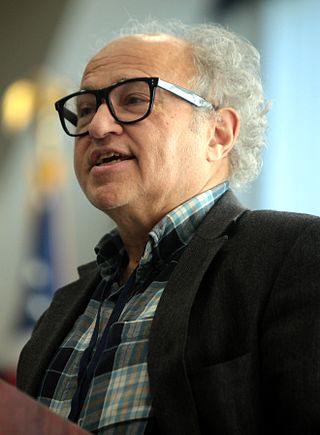
David Director Friedman is an American economist, physicist, legal scholar, author, and anarcho-capitalist theorist. Although he studied chemistry and physics and not law or economics, he is known for his textbook writings on microeconomics and the libertarian theory of anarcho-capitalism, which is the subject of his most popular book, The Machinery of Freedom. Described by Walter Block as a "free-market anarchist" theorist, Friedman has also authored several other books and articles, including Price Theory: An Intermediate Text (1986), Law's Order: What Economics Has to Do with Law and Why It Matters (2000), Hidden Order: The Economics of Everyday Life (1996), and Future Imperfect (2008).

Milton Friedman was an American economist and statistician who received the 1976 Nobel Memorial Prize in Economic Sciences for his research on consumption analysis, monetary history and theory and the complexity of stabilization policy. With George Stigler, Friedman was among the intellectual leaders of the Chicago school of economics, a neoclassical school of economic thought associated with the work of the faculty at the University of Chicago that rejected Keynesianism in favor of monetarism until the mid-1970s, when it turned to new classical macroeconomics heavily based on the concept of rational expectations. Several students, young professors and academics who were recruited or mentored by Friedman at Chicago went on to become leading economists, including Gary Becker, Robert Fogel, and Robert Lucas Jr.

Alfred Marshall was an English economist, and was one of the most influential economists of his time. His book Principles of Economics (1890) was the dominant economic textbook in England for many years. It brought the ideas of supply and demand, marginal utility, and costs of production into a coherent whole. He is known as one of the founders of neoclassical economics.

Gary Stanley Becker was an American economist who received the 1992 Nobel Memorial Prize in Economic Sciences. He was a professor of economics and sociology at the University of Chicago, and was a leader of the third generation of the Chicago school of economics.

Law and economics, or economic analysis of law, is the application of microeconomic theory to the analysis of law. The field emerged in the United States during the early 1960s, primarily from the work of scholars from the Chicago school of economics such as Aaron Director, George Stigler, and Ronald Coase. The field uses economics concepts to explain the effects of laws, to assess which legal rules are economically efficient, and to predict which legal rules will be promulgated. There are two major branches of law and economics; one based on the application of the methods and theories of neoclassical economics to the positive and normative analysis of the law, and a second branch which focuses on an institutional analysis of law and legal institutions, with a broader focus on economic, political, and social outcomes, and overlapping with analyses of the institutions of politics and governance.
The Chicago school of economics is a neoclassical school of economic thought associated with the work of the faculty at the University of Chicago, some of whom have constructed and popularized its principles. Milton Friedman, and George Stigler are considered the leading scholars of the Chicago school.
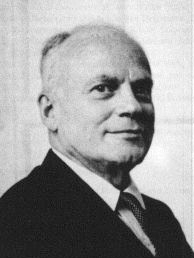
Jacob Viner was a Canadian economist and is considered with Frank Knight and Henry Simons to be one of the "inspiring" mentors of the early Chicago school of economics in the 1930s: he was one of the leading figures of the Chicago faculty. Paul Samuelson named Viner as one of the several "American saints in economics" born after 1860. He was an important figure in the field of political economy.

George Joseph Stigler was an American economist. He was the 1982 laureate in Nobel Memorial Prize in Economic Sciences and is considered a key leader of the Chicago school of economics.
Leonard Jimmie Savage was an American mathematician and statistician. Economist Milton Friedman said Savage was "one of the few people I have met whom I would unhesitatingly call a genius."
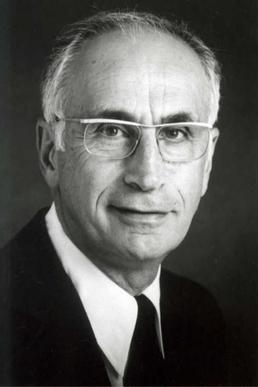
Armen Albert Alchian was an American economist. He spent almost his entire career at the University of California, Los Angeles (UCLA). A major microeconomic theorist, he is known as one of the founders of new institutional economics and widely acknowledged for his work on property rights.
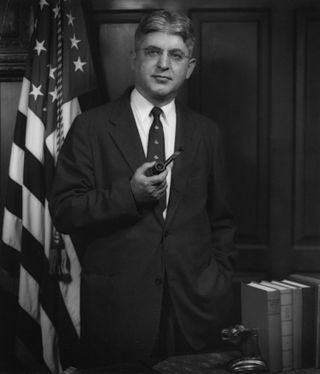
Arthur Frank Burns was an American economist and diplomat who served as the 10th chairman of the Federal Reserve from 1970 to 1978. He previously chaired the Council of Economic Advisers under President Dwight D. Eisenhower from 1953 to 1956, and served as the first Counselor to the President under Richard Nixon from January to November 1969. He also taught and researched at Rutgers University, Columbia University, and the National Bureau of Economic Research.

William M. Landes is an American economist who has written about the economic analysis of law and an emeritus professor at the University of Chicago Law School. He is a fellow of the American Academy of Arts and Sciences, which cited him for his work in the field. He is among the most cited law professors in American law reviews. Landes also is the original founder of Lexecon, a legal and economic consulting firm.
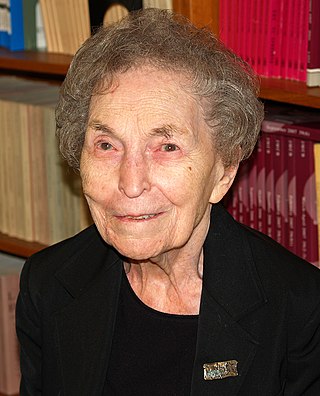
Anna Jacobson Schwartz was an American economist who worked at the National Bureau of Economic Research in New York City and a writer for The New York Times. Paul Krugman has said that Schwartz is "one of the world's greatest monetary scholars."
Steven Ng-Sheong Cheung is a Hong Kong-born American economist who specializes in the fields of transaction costs and property rights, following the approach of new institutional economics. He achieved his public fame with an economic analysis on China open-door policy after the 1980s. In his studies of economics, he focuses on economic explanation that is based on real world observation. He is also the first to introduce concepts from the Chicago School of Economics, especially price theory, into China. In 2016, Cheung claimed to have written "1,500 articles and 20 books in Chinese" during his academic career.
The following is a list of works by the prominent American economist Milton Friedman.
Between 2008 and 2011, the Milton Friedman Institute for Research in Economics was an academic center established at the University of Chicago as a collaborative, cross-disciplinary site for research in economics.

The Gary Becker Milton Friedman Institute for Research in Economics is a collaborative, cross-disciplinary center for research in economics. The institute was established at the University of Chicago in June 2011. It brought together the activities of two formerly independent economic research centers at the university: the Milton Friedman Institute for Research in Economics and the Becker Center on Chicago Price Theory, founded by Richard O. Ryan.
Lloyd Wynn Mints (1888–1989) was an American economist, notable for his contributions to the quantity theory of money.











